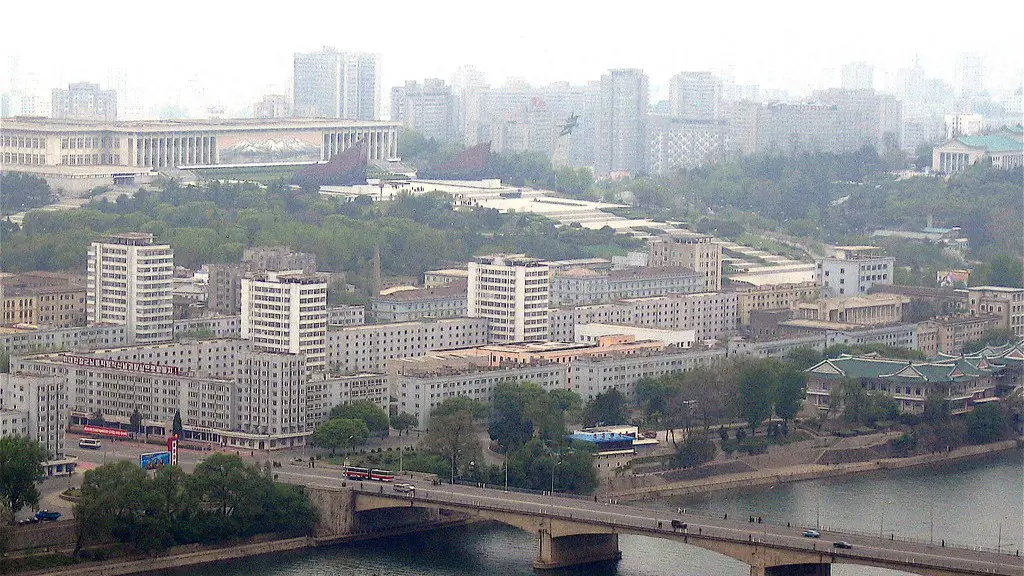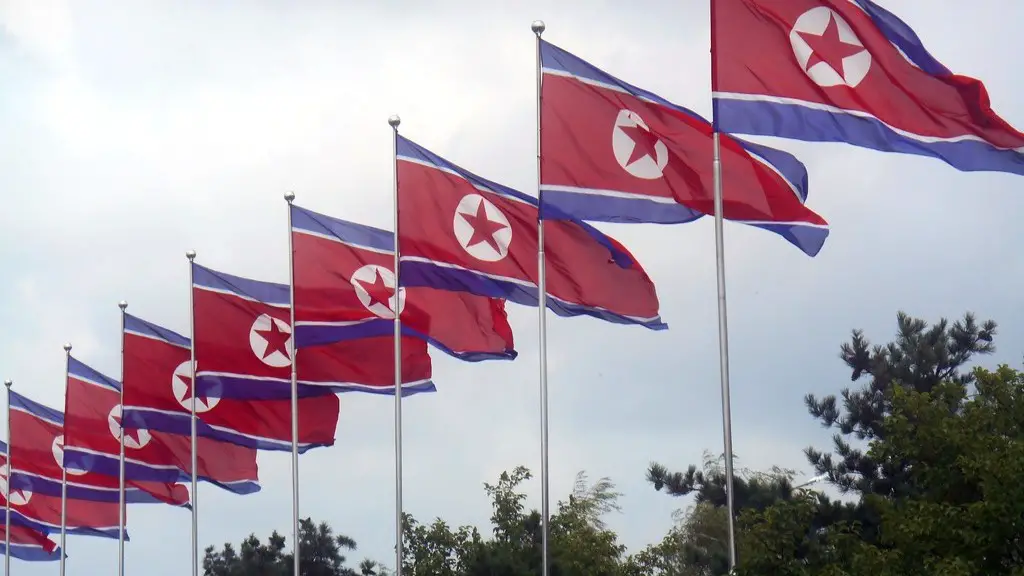The question of whether or not the leader of North Korea is crazy has been a topic of discussion for many years. The reclusive and hostile behavior of the president, Kim Jong Un, has been seen as a warning sign by some. While others have argued that his actions could be rational and make sense for his country’s foreign policy. There is no one definitive answer as to whether or not the leader is crazy, and the best we can do is to look at the facts, evidence and perspectives from experts.
In order to evaluate whether or not Kim Jong Un is crazy, one must first look at the context of his rule and North Korea’s history. North Korea has long been considered a rogue state with a long history of isolation and hostile behavior, this has been true even before Kim took office. There is also a long history of suspicious, aggressive or erratic behavior from the country’s leaders, most notably Kim Jong Il and his son Kim Jong Un, who has continued and even accelerated the country’s bellicose rhetoric.
This all begs the question as to whether Kim Jong Un’s behavior is in fact irrational or whether it could be seen as a calculated attempt at maintaining power and stability for the region. While some would argue that Kim’s actions are the result of his own mental instability and much of his behavior is irrational, others contend that the actions and rhetoric of North Korea’s leaders fit perfectly into their own foreign and security policy.
This could be studied in three primary ways. There is the perspective of foreign policy experts, who analyze the strategic implications of North Korea’s rhetoric and decisions. Secondly, one could look at the cultural, political and religious aspects of the North Korean state, which might provide some insight into the motivations of its leaders. Lastly, one could look at the psychological perspectives of North Korea’s leaders, attempting to understand the deeper motivations behind their actions.
However, more evidence is required in order to make any definitive assessment of the leader. Much of the information available is from sources outside of North Korea, leading to the possibility of bias or misinformation. What’s more, even if we do assume that the leader is irrational, it is hard to make any logical assessment as to why, given the very secretive nature of the North Korean government and the fact that access to its leaders is extremely limited.
In the end, it is impossible to say categorically whether or not the leader of North Korea is crazy. What we do know is that there is a history of isolation, suspicion and hostile rhetoric from the country’s leaders, and that Kim Jong Un is the latest example of this. To make a more definitive assessment of his sanity, more information is needed and this is in short supply.
Effects of North Korean Behavior Towards the International Community
Analyzing the effects of North Korean behavior on the international community can provide a different perspective of the situation. North Korea’s accelerated nuclear weapons program, its threats to its neighbors, and various hostile statements made towards the US are seen by many as the standard of irrational behavior from a state actor. From the US’ perspective, North Korea’s actions and rhetoric have only further complicated strained American foreign policy in the region, making it difficult to cooperate and negotiate with North Korea.
North Korea’s rhetoric also doesn’t appear to have any obvious strategic purpose, which would suggest that North Korea’s leader is not acting rationally. For instance, threats of war and allusions to the use of nuclear weapons, while they may succeed in frighting other nations, will likely only lead to further isolations of North Korea, and not to any real diplomatic success.
That being said, some have argued that North Korea’s behavior is a calculated and strategic attempt to advance its own interests, even if this strategy can be seen as irrational or hostile. It’s also possible that North Korea is simply attempting to remain in the global spotlight and seen as a major player in the international community, a perspective that has seen some success, given the attention it receives from the international world.
In any case, North Korea’s hostile behavior towards the international community and its continual threats of aggression are seen as worrying signs, and it’s difficult to attribute any understandable, rational purpose behind them.
Effects of North Korea’s domestic policy
While a lot of attention is given to North Korea’s aggressive foreign policy, its domestic policy is also of concern. The citizens of North Korea suffer under harsh and oppressive authoritarian rule that curtails their basic rights and freedoms, from freedom of speech to freedom of association. Human rights problems such as arbitrary arrest and detention, torture and public executions are rampant in the country, as are food shortages and economic hardships.
The effects of North Korean domestic policy can easily be understood as being irrational and oppressive. For example, the government’s extreme censorship and control of media, keeps citizens from learning about information from outside, the effects of the government’s strict surveillance measures undermines key freedoms and safety, and archaic economic policies have led to poverty and shortages of food and medicine.
It is hard to see what rational purpose these policies could serve. There is no benefit to the citizens of North Korea in terms of their rights or wellbeing and any long-term benefits that could arise from such policies have not manifested. North Korea’s domestic policies seem to serve primarily to repress its people and maintain power in the hands of its leaders.
Does North Korean Behavior Make Sense from a Strategic Perspective?
When it comes to evaluating the behavior of North Korea’s leaders, one must ask if their actions make sense from a strategic perspective. While some may argue that Kim Jong Un’s actions are irrational and lack any sort of meaningful purpose, this may not be the case. It is possible to see how North Korea’s rhetoric, aggression and nuclear weapons program could be seen as strategic attempts to increase their power and influence in the region.
For example, North Korea’s nuclear weapons program has certainly created a sense of fear in the region and has led to the US emphasizing their commitment to security in East Asia. It has also led to negotiations and agreements between North Korea and other countries in the region, such as South Korea and China. North Korea’s rhetoric has also had the effect of highlighting the country’s importance in global affairs, and the US and other countries have had to take North Korea seriously as a global actor.
It could also be argued that North Korea’s behavior is an attempt to create a deterrence, which would help protect the nation from any potential military aggression. North Korea’s nuclear weapons program is seen as an attempt to create a balance of power in the region and deter countries from taking any hostile action. Overall, it is possible to see that North Korean behavior may not be as irrational as it appears, and there may be a degree of strategic reasoning behind the actions of its leader.
Conclusion of North Korean Behavior
In conclusion, the answer to the question of whether or not the leader of North Korea is crazy is not simple. There is no one definitive answer, as it depends on various factors and evidence from both inside and outside of the country. On one hand, North Korea has a long history of isolation, hostility, and suspicious behavior from its leaders, including Kim Jong Un, and there are many indications that his decisions and rhetoric could be irrational. On the other hand, North Korea may be calculatedly attempting to maintain power and stability in the region by engaging in hostile rhetoric, and it is difficult to make any definitive assessments without evidence or access to the country’s leaders.
From examining North Korean behavior both domestically and abroad, it is clear that there are a number of worrying signs and indications of irrationality. However, it is impossible to definitively say that Kim Jong Un is crazy without more information or evidence, and it is up to the international community to continue to monitor the situation and to use diplomatic means to attempt to bring the situation to a more peaceful and productive resolution.




